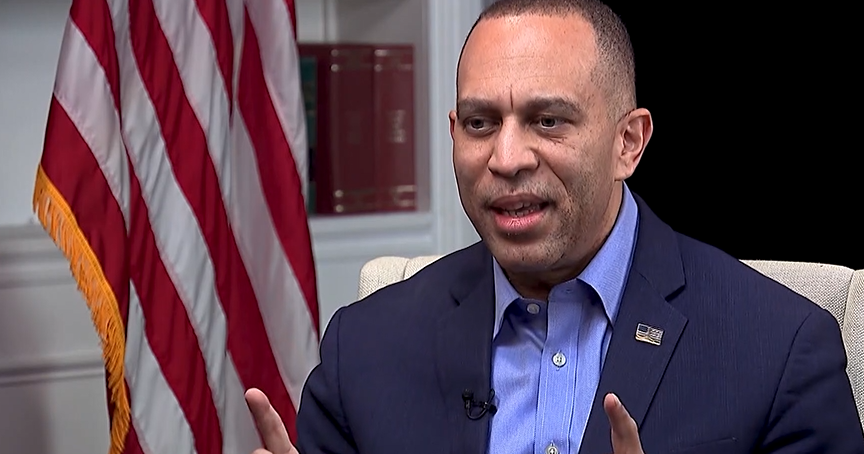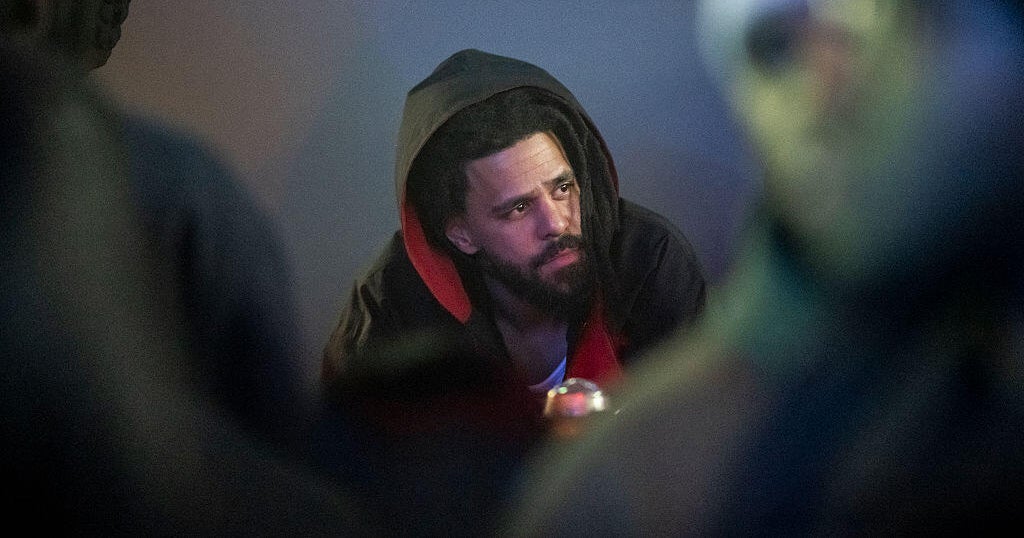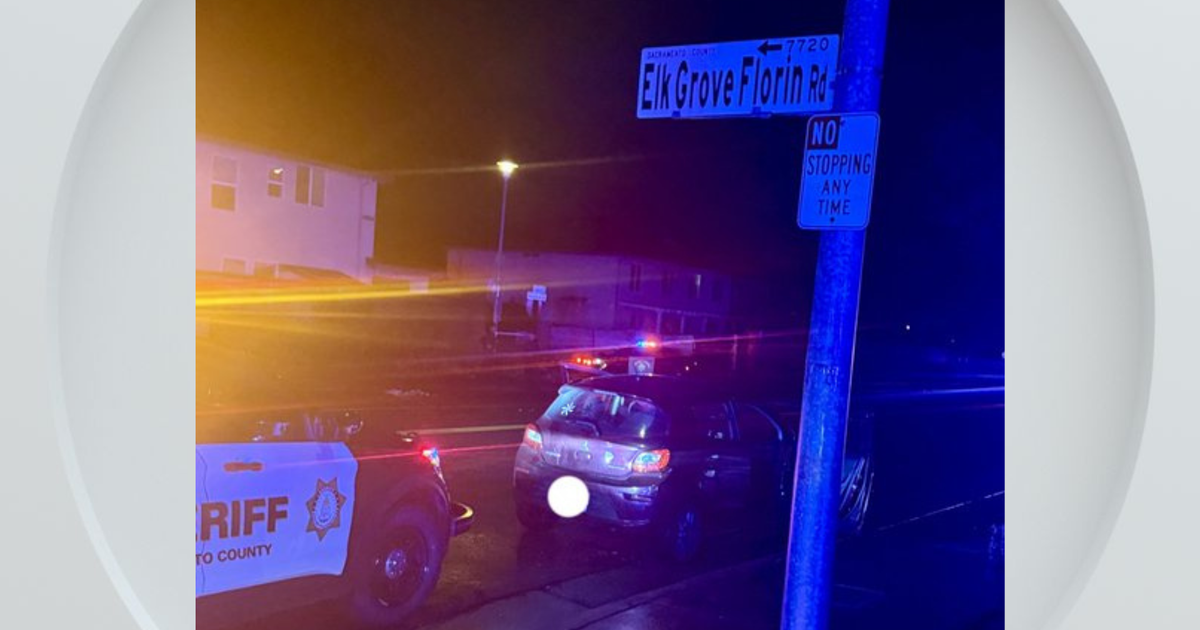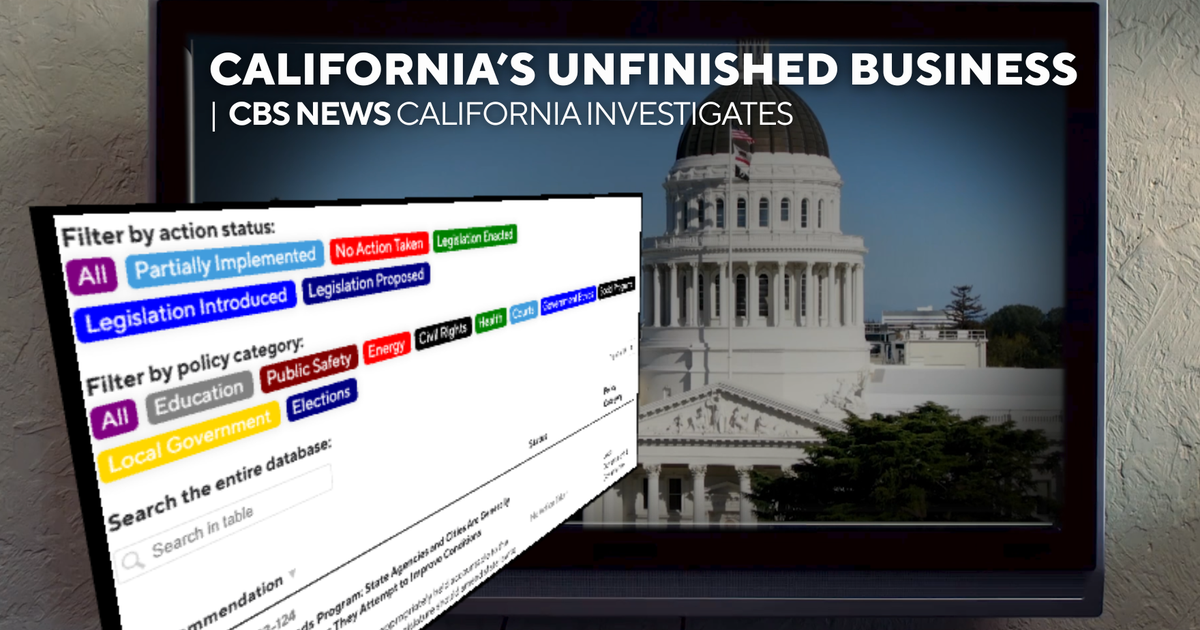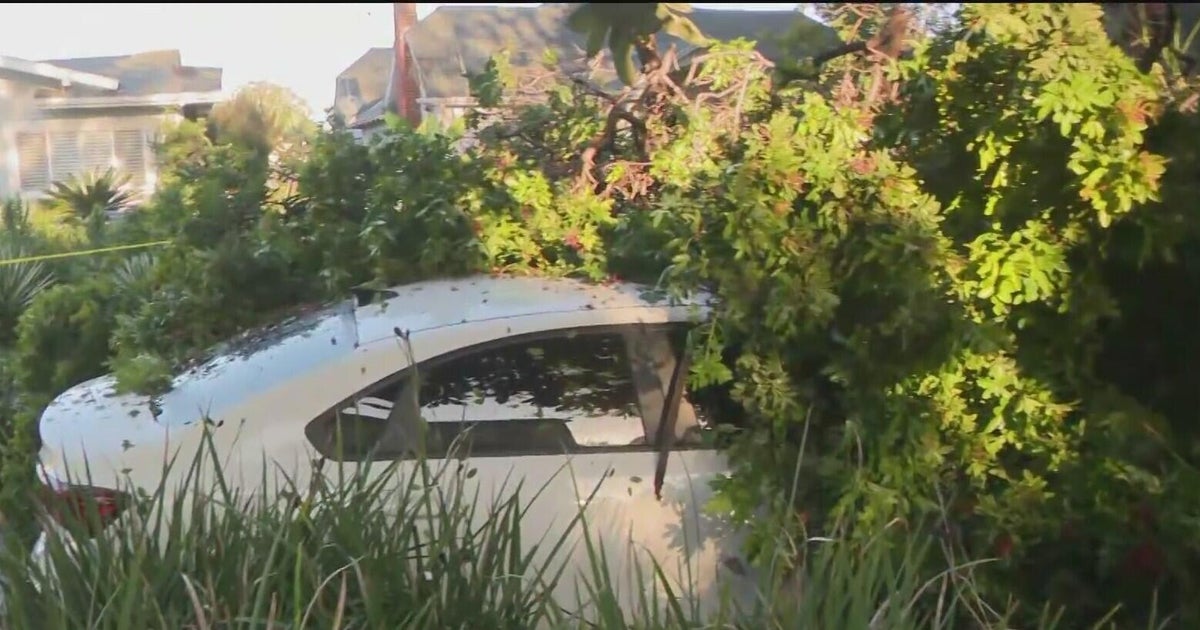California Leaders Continue Budget Talks
SACRAMENTO (AP) -- Nearly a quarter of the way through California's fiscal year, legislative leaders and Gov. Arnold Schwarzenegger still were struggling Monday to end the state's record budget impasse and make long-term reforms.
Lawmakers reported progress after 90 minutes of evening negotiations and planned to continue talks with the governor at noon Tuesday.
After meeting Thursday in Schwarzenegger's private office in Santa Monica, the governor and lawmakers announced what they described as a framework for a potential solution to eliminate a $19 billion budget deficit.
However, Senate Minority Leader Dennis Hollingsworth, R-Murrieta, estimated Monday that they are only about 80 percent to 90 percent of the way toward a final agreement. Senate President Pro Tem Darrell Steinberg, D-Sacramento, said he still hopes for a budget vote next week.
Among the sticking points in closing a deal are Schwarzenegger's demands for tax reforms, budget reforms including creating a rainy day fund, and public pension reforms including rolling back benefit increases approved 11 years ago.
"There are a lot of moving parts that are still getting worked on: pension reform, reductions, budget reform. Believe me, the list is much longer," said Department of Finance spokesman H.D. Palmer.
Steinberg said Democrats are insisting that Schwarzenegger wrestle concessions from public employee unions through collective bargaining before they consider his proposals for legislative changes to the pension system.
Negotiations are expected to continue with the 95,000-member Service Employees International Union, which represents nine of the 15 bargaining units that lack a contract, although no talks are currently scheduled, said Department of Personnel Administration spokeswoman Lynelle Jolley.
"All sides recognize that some pension reform has to take place," said Assembly Minority Leader Martin Garrick, R-Solano Beach, as he left the meeting.
Even if the leaders reach agreement, a budget will require support from two-thirds of lawmakers in the Senate and Assembly.
"I know how frustrated the people are, and understandably so," Steinberg said of the long budget delay.
He said some "creative" bookkeeping will be needed to bridge the budget gap because Republicans are refusing to raise taxes and Democrats won't allow deeper budget cuts.
There is no alternative unless voters approve Proposition 25 on the November ballot, freeing Democrats who control the Legislature from governing "with one arm tied behind our backs," Steinberg said. The measure would let the Legislature pass budgets with a simple majority vote rather than a two-thirds majority.
"I think the question for the people of California is how high do you want the spending to go and how high do you want your taxes to go?" Hollingsworth countered.
Monday's negotiations were delayed until evening so Schwarzenegger could give a speech on California's climate change efforts to the Commonwealth Club in Santa Clara. He told audience members it should be possible "in the next week" for the state to have both a budget and the reforms he is demanding as he prepares to leave office in January.
The state already has set a record for the longest budget impasse since the beginning of a fiscal year, meaning schools, counties and thousands of state contractors are not getting paid.
The situation is about to get marginally worse 90 days into the fiscal year that began July 1, Palmer said. Starting Friday, commercial lenders can cut off the state's credit card, known as CalCard, for lack of payment. Among other things, it means the Department of Parks and Recreation may not be able to buy restroom and other supplies.
"Purchases like toilet paper in remote rural parks become a problem," Palmer said. It won't be an immediate issue at parks in more urban areas that stockpiled supplies, he said.
More than 2,500 children will be without day care Wednesday as one of California's largest state-funded child development agencies closes its 41 San Francisco-area centers in a one-day protest. Kidango Inc., which serves children through age 12, is joining 10 other agencies in a march and rally with employees, parents and children in Fremont.
Most of the other child care agencies are staying at least partly open, but Kidango hasn't been paid since July 1 and its credit and reserves are running low, said spokeswoman Camille Llanes-Fontanilla.
"We decided a few weeks ago to take some drastic action," she said. "Cash flow has been a huge problem for us this year."
The California Department of Transportation said last week that it has been forced to halt $3.9 billion in funding for new projects over the past two months. If the stalemate continues, CalTrans spokesman Matt Rocco said the state may have to halt payments on another $9.5 billion worth of projects that already are under way.
The state treasurer's office is negotiating with banks for a short-term loan of about $5 billion to be issued immediately after a budget is signed, said spokesman Joe DeAnda. The short-term borrowing would be replaced with a longer-term loan of about $10 billion about a month after the budget takes effect, he said.
Without a budget, state Controller John Chiang said a lack of money may force the state to begin issuing IOUs early next month, as it did last year for just the second time since the Great Depression. He had estimated IOUs would begin in mid-September, but the government reported higher revenue and lower spending in August than had been expected.
Budget negotiators are counting on that trend continuing as they work to close the $19 billion gap. They have settled on about $7.5 billion in cuts, though aides would not say what programs would be affected.
Additional money would come from selling state office buildings, delaying a corporate tax break, and anticipating more federal aid.
(© 2010 The Associated Press. All Rights Reserved. This material may not be published, broadcast, rewritten or redistributed.)
